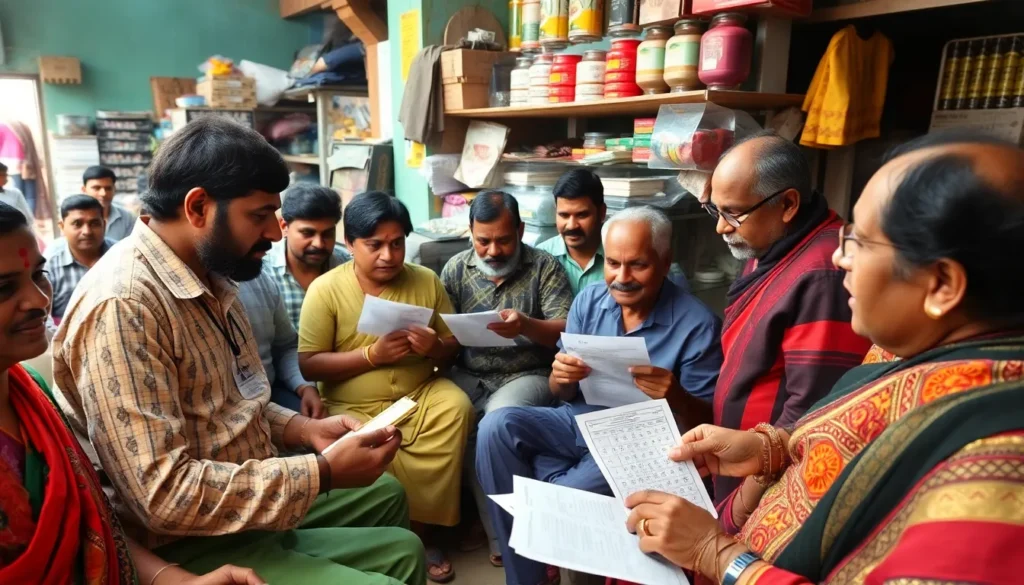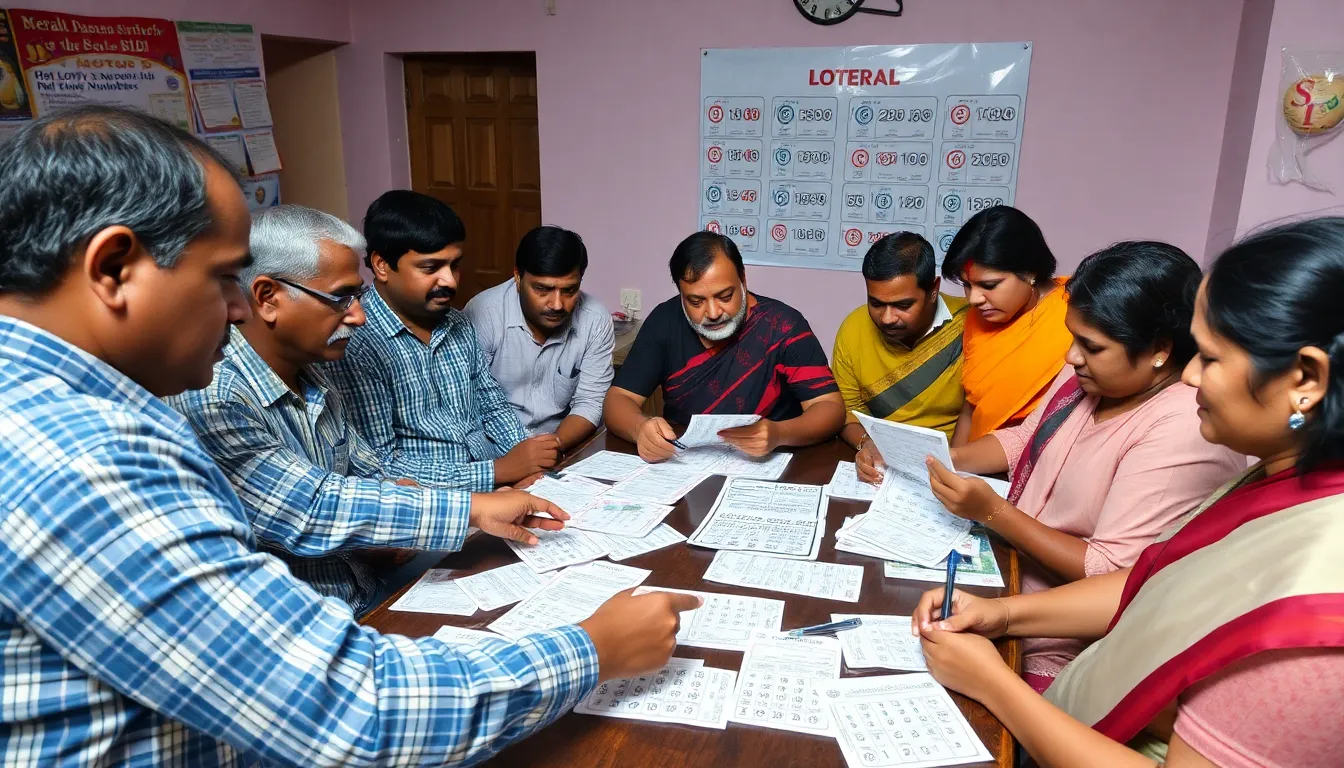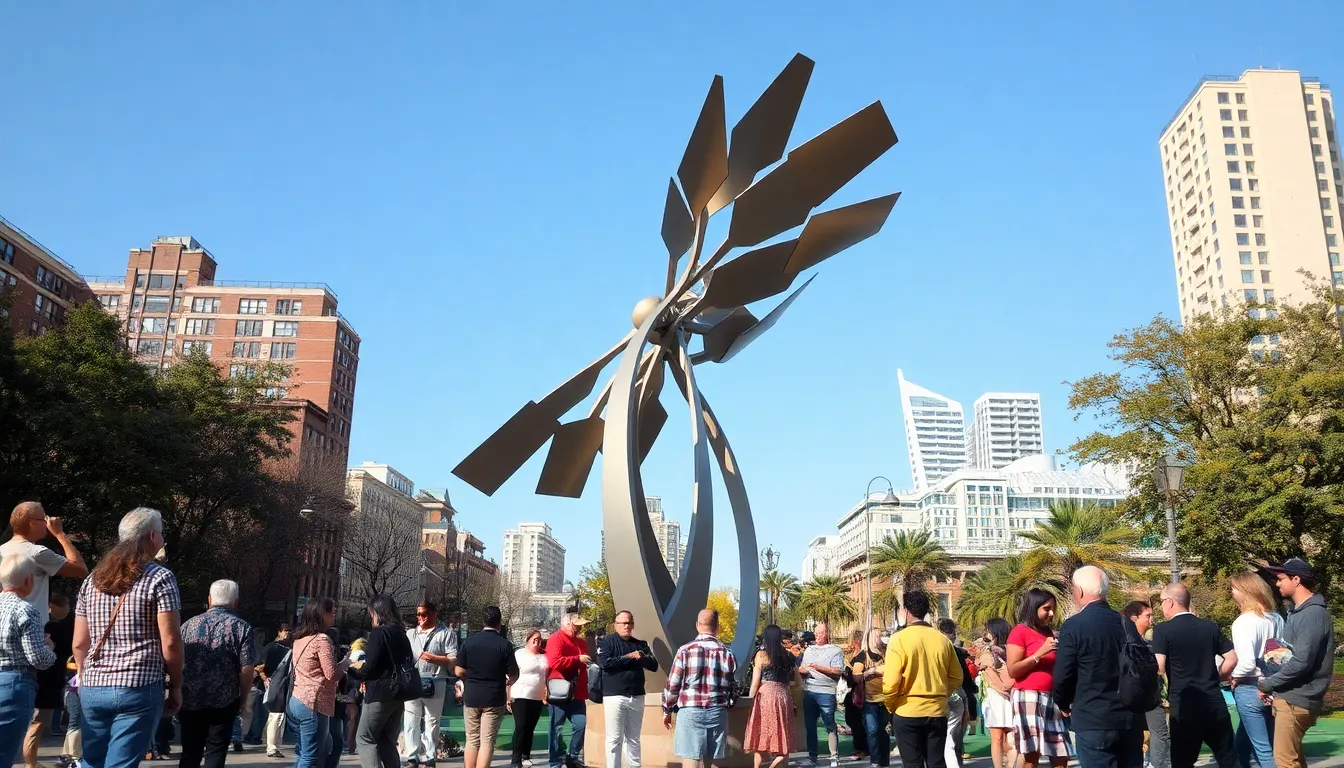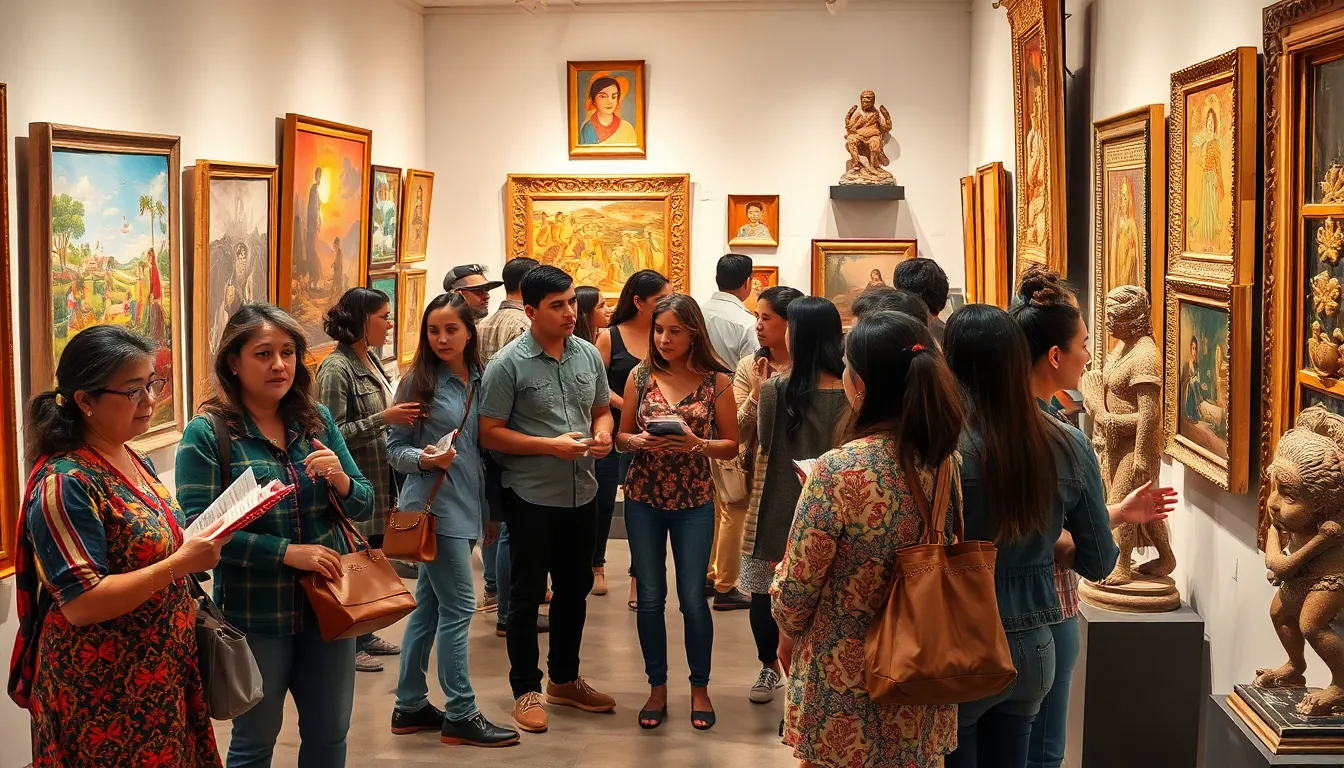Table of Contents
ToggleThe world of Kerala lottery has captivated millions with its promise of life-changing jackpots and exciting draws. For enthusiasts looking to enhance their chances, “Kerala lottery guessing” has emerged as a popular approach to predicting potential winning numbers through various methods and strategies.
While no technique guarantees success, many players rely on statistical analysis, pattern recognition, and even traditional beliefs to make educated guesses about upcoming results. These prediction methods have created vibrant communities where participants share insights, lucky number combinations, and forecasting techniques for popular draws like Karunya, Nirmal, and Akshaya.
ChatGPT
The world of Kerala lottery has captivated millions with its promise of life-changing jackpots and exciting draws. For enthusiasts looking to enhance their chances, “Kerala lottery guessing” has emerged as a popular approach to predicting potential winning numbers through various methods and strategies.
While no technique guarantees success, many players rely on statistical analysis, pattern recognition, and even traditional beliefs to make educated guesses about upcoming results. These prediction methods have created vibrant communities where participants share insights, lucky number combinations, and forecasting techniques for popular draws like Karunya, Nirmal, and Akshaya.
What Is Kerala Lottery Guessing?
Kerala lottery guessing refers to the practice of predicting potential winning numbers for Kerala’s state-run lottery draws through various analytical methods and intuitive techniques. This popular approach involves studying past results, identifying number patterns, and applying statistical models to increase the chances of selecting winning combinations.
Players across Kerala and beyond engage in lottery guessing to improve their odds in draws such as Karunya Plus, Win-Win, and Sthree Sakthi. The practice has gained significant traction with the rise of online guessing forums, dedicated websites, and social media groups where enthusiasts share their predictions and methodologies.
The guessing techniques commonly employed include:
- Hot and cold number analysis – Tracking frequently drawn (hot) and rarely appearing (cold) numbers across multiple draws
- Statistical modeling – Applying mathematical formulas to identify potential number distributions
- Date-based predictions – Correlating winning numbers with significant dates or events
- Chart analysis – Studying visual representations of past results to identify recurring patterns
While Kerala lottery guessing doesn’t guarantee wins, it transforms the lottery experience from pure chance into a more strategic and community-driven activity. The analytical approach provides participants with a sense of control and engagement beyond simply purchasing tickets.
Many guessing practitioners maintain detailed logs of their predictions and actual results to refine their techniques over time. This methodical approach has created an entire ecosystem of lottery enthusiasts who blend mathematical analysis with traditional beliefs about lucky numbers.
The History of Kerala State Lotteries
Kerala State Lotteries revolutionized the Indian lottery landscape when it launched in 1967, becoming the first government-operated lottery system in the country. This pioneering initiative was established under the visionary leadership of Kerala’s finance minister P.K. Kunju Sahib as a legal alternative to private lotteries that were often associated with fraud and exploitation.
How the Kerala Lottery System Works
The Kerala lottery system operates through a transparent and systematic process regulated by the state government. Tickets are printed with unique numbers and distributed through a network of over 35,000 authorized agents across the state. Each ticket costs between ₹30-₹50 depending on the specific lottery scheme, making them accessible to the general public. Draws occur daily except Sundays, with different lottery schemes such as Karunya, Win-Win, and Akshaya scheduled on specific days of the week. Winners are categorized into multiple prize tiers, with first prizes often reaching ₹70-80 lakhs while smaller consolation prizes ensure broader participation. The government transfers winnings directly to recipients’ bank accounts after deducting applicable taxes, typically 30% for prizes exceeding ₹10,000.
Popular Kerala Lottery Guessing Methods
Kerala lottery enthusiasts employ several methodologies to predict potential winning numbers. These guessing techniques range from analytical approaches to intuitive methods, each with dedicated followers who swear by their effectiveness in increasing chances of winning the various lottery draws.
Number Pattern Analysis
Number pattern analysis examines previous draw results to identify recurring sequences and frequency patterns. Players track numbers that appear together frequently or follow specific sequences across multiple draws. Many enthusiasts maintain detailed charts showing the appearance frequency of each number in draws like Karunya, Akshaya, and Win-Win, noting when certain digits appear in specific positions. For instance, some players track how often the number 7 appears in the last digit position across 20-30 consecutive draws. These patterns help players formulate predictions based on historical data rather than random selection, with many successful players focusing on both broad patterns and position-specific trends.
Statistical Approaches
Statistical approaches leverage mathematical models to forecast potential winning combinations. Lottery guessers apply techniques such as hot and cold number analysis, probability calculations, and regression modeling to identify favorable numbers. Hot numbers (frequently drawn) and cold numbers (rarely appearing) form the basis for many statistical strategies. Players use spreadsheets to track metrics like number frequency, gaps between appearances, and positional probabilities across different Kerala lottery schemes. For example, one popular method involves calculating the average appearance frequency of each number over 50 draws, then selecting numbers that are mathematically “due” to appear. Online communities regularly share statistical models tailored specifically to Kerala lottery draws, creating a knowledge-sharing ecosystem for data-driven prediction.
Dream Interpretations
Dream interpretations represent a cultural approach to Kerala lottery guessing that blends tradition with modern lottery participation. Many players believe dreams contain numerical messages that can translate into winning combinations. Specific symbols or scenarios in dreams correspond to particular numbers according to traditional Malayalam dream interpretation guides known as “swapna phalam.” For example, dreaming of elephants might suggest the numbers 8 or 9, while water-related dreams often point to 1 or 6. Players maintain dream diaries where they record symbols, emotions, and scenarios from their dreams, later converting these elements into number combinations using traditional or personal number associations. This method has strong cultural roots in Kerala, where many lottery winners have claimed their selections came from significant dreams experienced before purchasing tickets.
Ethics and Legality of Lottery Guessing
Legal Framework of Kerala Lottery
Kerala State Lotteries operate within a strict legal framework established by the Kerala State Lotteries Act. The government-run lottery system received formal authorization in 1967, making it India’s first legal state lottery. All official Kerala lottery activities, including ticket sales, draws, and prize distributions, comply with regulations enforced by the Kerala State Lotteries Department. Only authorized agents can legally sell genuine lottery tickets, which contain specific security features like watermarks and unique serial numbers. The system’s legality contrasts sharply with unauthorized private lotteries, which remain illegal throughout most of India under the Public Gambling Act of 1867 and various state-specific legislation.
Distinguishing Between Prediction and Fraud
Lottery guessing occupies a gray area distinct from outright lottery fraud. Legitimate lottery guessing involves enthusiasts analyzing past results and sharing predictions without guarantees of success. These activities typically occur on public forums where participants freely exchange theories and potential number combinations. Fraudulent schemes, however, involve individuals or organizations charging money for “guaranteed winning numbers,” selling fake tickets, or operating unauthorized lotteries. Ethical lottery guessing communities explicitly acknowledge the inherent uncertainty of predictions and avoid making promises about outcomes. Law enforcement agencies regularly monitor for scams that exploit vulnerable players by falsely claiming to have inside information or foolproof prediction systems.
Responsible Participation Guidelines
Responsible lottery participation requires understanding the probability-based nature of all lottery games. Ethical participants approach lottery guessing as entertainment rather than a reliable income source, setting strict personal spending limits and avoiding chasing losses. Support systems exist for players who develop problematic gambling behaviors, including helplines operated by the Kerala State Government and NGOs specializing in addiction counseling. Transparent prediction communities emphasize the mathematical reality that no guessing system can guarantee wins, encouraging members to participate only with discretionary funds they can afford to lose. Ethical guessing forums ban the solicitation of payments for predictions and actively report fraudulent operators to authorities.
Cultural and Social Considerations
Lottery participation holds different cultural meanings across Kerala’s diverse communities. Many families incorporate lottery ticket purchases into weekly routines and religious practices, viewing modest participation as a form of hope rather than gambling. Social scientists note how neighborhood lottery shops function as community gathering spaces where predictions are discussed alongside local news and family updates. Cultural attitudes toward lottery guessing vary significantly between urban and rural areas, with some traditional communities viewing excessive prediction activities as potentially problematic. Religious leaders across denominations generally accept moderate lottery participation while cautioning against obsessive behaviors or financial overcommitment.
Success Stories and Cautionary Tales
Life-Changing Wins Through Guessing Techniques
Kerala lottery guessing techniques have helped numerous players secure significant wins. Rajesh Kumar, a government employee from Trivandrum, consistently analyzed number patterns for three years before winning a ₹80 lakh Karunya jackpot in 2019. His methodical approach involved tracking “hot” numbers that appeared frequently in previous draws. Similarly, Mary Thomas, a homemaker from Kochi, won ₹65 lakh in the Akshaya lottery after participating in an online prediction group that focused on statistical modeling techniques.
These success stories often share common elements: persistence, systematic record-keeping, and combining multiple prediction methods. Many winners report spending 1-2 hours weekly analyzing results and limiting their ticket purchases to 3-5 per draw. Online forums document dozens of medium-sized wins (₹1-10 lakh range) attributed to various guessing techniques, particularly those involving chart analysis and number sequencing.
When Prediction Goes Wrong: Lessons Learned
Despite occasional successes, Kerala lottery guessing has led to financial hardships for many participants. Mathew Philip from Kozhikode spent over ₹3 lakh on tickets based on dream interpretation predictions over two years without significant returns. His case highlights the dangers of over-reliance on subjective prediction methods. Similarly, a 2021 survey of 500 regular lottery players revealed that 78% spent more on tickets than they ever recovered through winnings.
Several documented cases show how guessing can lead to problematic behaviors. In Malappuram district, authorities identified three instances where individuals sold “guaranteed winning predictions” for ₹5,000 per consultation, exploiting vulnerable players. These scams typically targeted first-time players unfamiliar with the statistical realities of lottery odds, which remain 1 in several million regardless of prediction techniques.
Balancing Hope and Reality
Successful lottery participants maintain a balanced approach to guessing practices. Anjali Nair, who won ₹25 lakh in the Sthree Sakthi lottery, attributes her success to setting strict spending limits of ₹500 monthly while applying statistical analysis to her number selections. This disciplined approach prevented financial strain while allowing her to enjoy the prediction process.
Support groups like the Kerala Lottery Players Association promote responsible participation guidelines, including:
- Setting non-negotiable spending caps (typically 1-2% of monthly income)
- Treating lottery participation as entertainment rather than investment
- Documenting all expenditures and winnings for transparency
- Avoiding borrowing money for ticket purchases
- Combining guessing techniques with random selections
These balanced approaches have helped thousands of players maintain healthy relationships with lottery participation while still engaging in the cultural practice of number guessing and prediction.
Common Misconceptions About Kerala Lottery Guessing
Guaranteed Wins Through Prediction Systems
Prediction systems don’t guarantee lottery wins despite widespread belief. Many Kerala lottery enthusiasts mistakenly assume that following specific guessing methods leads to certain success. Statistical analysis, pattern recognition, and number tracking provide insights into possible outcomes but cannot overcome the fundamental randomness of lottery draws. Each draw remains an independent event where previous results don’t influence future outcomes. Even the most sophisticated prediction systems operate within the constraints of probability theory, making guarantees of success misleading.
“Due” Numbers Must Appear Soon
The concept of “due” numbers represents a common misunderstanding in Kerala lottery guessing. Many players incorrectly believe that numbers which haven’t appeared for several draws are “due” to appear soon. This misconception, known as the gambler’s fallacy, ignores the fact that lottery draws don’t have memory. Numbers drawn today don’t influence tomorrow’s selection. Each ball has equal probability of being drawn regardless of its recent history. Tracking frequency patterns provides interesting data but doesn’t create predictable outcomes in a truly random system.
More Tickets Equal Proportionally Better Chances
Buying multiple tickets doesn’t proportionally increase winning chances as many assume. While purchasing additional tickets does mathematically improve odds, the improvement remains marginal compared to the total number of possible combinations. For example, in a lottery with millions of possible combinations, buying 100 tickets instead of 1 only minimally shifts the probability needle. Many players overestimate this impact, leading to excessive spending without proportional improvement in winning prospects. Understanding true probability helps maintain realistic expectations about ticket purchasing strategies.
Certain Numbers Are Inherently “Lucky”
Lucky numbers don’t possess special winning properties despite cultural beliefs. Many Kerala lottery participants attribute special qualities to certain numbers based on personal significance, dreams, or cultural associations. Numbers like 7, 9, and combinations derived from birthdays receive disproportionate attention despite having identical mathematical chances as any other selection. This misconception often leads to crowded number selections, potentially reducing individual payouts when common “lucky” numbers win. Statistically, all numbers maintain equal probability of appearing in any given draw.
Professional Predictors Have Secret Formulas
Professional predictors don’t possess secret formulas that guarantee lottery success. Some individuals market themselves as having exclusive methods or insider information about Kerala lottery draws, charging for predictions or “guaranteed” winning numbers. These claims contradict the fundamental nature of regulated lotteries, which employ strict random drawing procedures specifically designed to prevent prediction. Legitimate Kerala State Lotteries use transparent processes with independent verification to ensure fairness and randomness. Any claimed ability to consistently predict outcomes typically relies on confirmation bias rather than genuine predictive power.
Historical Data Provides Definitive Future Predictions
Historical data doesn’t determine future lottery outcomes despite analytical approaches. While analyzing past Kerala lottery results helps identify interesting patterns, these patterns don’t translate to predictive power. The randomness of each draw means that historical trends provide no definitive advantage for future selections. Statistical analyses showing number frequencies, pairs, or sequences represent past distributions rather than future probabilities. Many players misinterpret retrospective patterns as predictive tools, leading to false confidence in certain number selections based purely on historical appearance rates.
Resources for Kerala Lottery Enthusiasts
Official Websites and Mobile Apps
Kerala lottery enthusiasts have access to several official digital resources for accurate information. The Kerala State Lotteries Department website (www.keralalotteries.com) serves as the primary source for draw results, ticket verification, and upcoming lottery schemes. This government-run portal provides daily updates on winning numbers, prize structures, and official announcements. Mobile applications like “Kerala Lottery Result” and “Kerala Lottery Scanner” offer convenient alternatives for checking results and scanning tickets directly from smartphones. These apps send instant notifications about draw results and provide archives of previous winning combinations for analysis purposes.
Prediction Forums and Online Communities
Online forums dedicated to Kerala lottery guessing have created vibrant digital communities where enthusiasts exchange predictions. Platforms like “Kerala Lottery Guessing Forum” and Facebook groups such as “Kerala Lottery Result Guessing” boast memberships ranging from 50,000 to 200,000 participants. These communities feature daily prediction threads where members post their number combinations based on various analytical methods. Telegram channels with names like “KL Lottery Experts” broadcast guessing formulas and trending number patterns to subscribers. Active participation in these forums provides access to collective wisdom and diverse prediction approaches from experienced players across Kerala.
Analytical Tools and Software
Specialized analytical tools help enthusiasts apply mathematical rigor to their prediction strategies. Software applications like “Lottery Analyzer Pro” and “KL Number Tracker” allow users to input historical data and generate statistical reports on number frequency, overdue numbers, and potential patterns. These tools calculate probability distributions and highlight numbers with statistical anomalies that might warrant attention. Spreadsheet templates designed specifically for Kerala lottery analysis enable players to maintain organized records of their predictions and actual results. Advanced users leverage custom algorithms that process years of historical data to identify subtle patterns invisible to casual observation.
Books and Publications on Lottery Strategies
Several publications offer insights into Kerala lottery prediction methodologies. Books like “The Mathematics of Lottery: Kerala Edition” and “Scientific Approaches to Lottery Guessing” explore statistical models applied specifically to Kerala’s lottery system. Monthly magazines such as “Lottery Wisdom” feature articles from successful players sharing their personal strategies and experiences. These publications typically include sections on number pattern analysis, dream interpretation guides translated into Malayalam, and interviews with notable winners. Local bookstores in major Kerala cities maintain dedicated sections for lottery-related literature, reflecting the cultural significance of this activity.
Training Workshops and Seminars
Physical and virtual workshops provide structured learning environments for lottery enthusiasts. Weekend seminars in cities like Kochi, Thiruvananthapuram, and Kozhikode attract 30-100 participants eager to learn prediction techniques from experienced players. These sessions typically cover topics like mathematical probability, chart analysis, and systematic betting approaches. Online webinars hosted by lottery prediction websites offer more accessible alternatives with interactive elements such as live Q&A sessions and practical demonstrations of analytical methods. While participation fees for these events range from ₹500-₹2000, many attendees consider them valuable investments in refining their prediction skills.
Conclusion
The world of Kerala lottery guessing combines mathematical analysis with cultural traditions to create a unique community experience. While no prediction method guarantees success these practices transform a simple game of chance into an engaging social activity filled with strategy and hope.
Players who approach lottery guessing with realistic expectations and responsible habits enjoy the best experience. The vibrant ecosystem of resources forums and analysis tools continues to evolve supporting enthusiasts in their pursuit of that elusive jackpot.
Kerala’s lottery system stands as a testament to transparent government-regulated gaming where prediction communities thrive within ethical boundaries. Whether through statistical models or dream interpretations participants find meaning beyond the potential financial rewards making this distinctive cultural phenomenon an integral part of Kerala’s identity.




